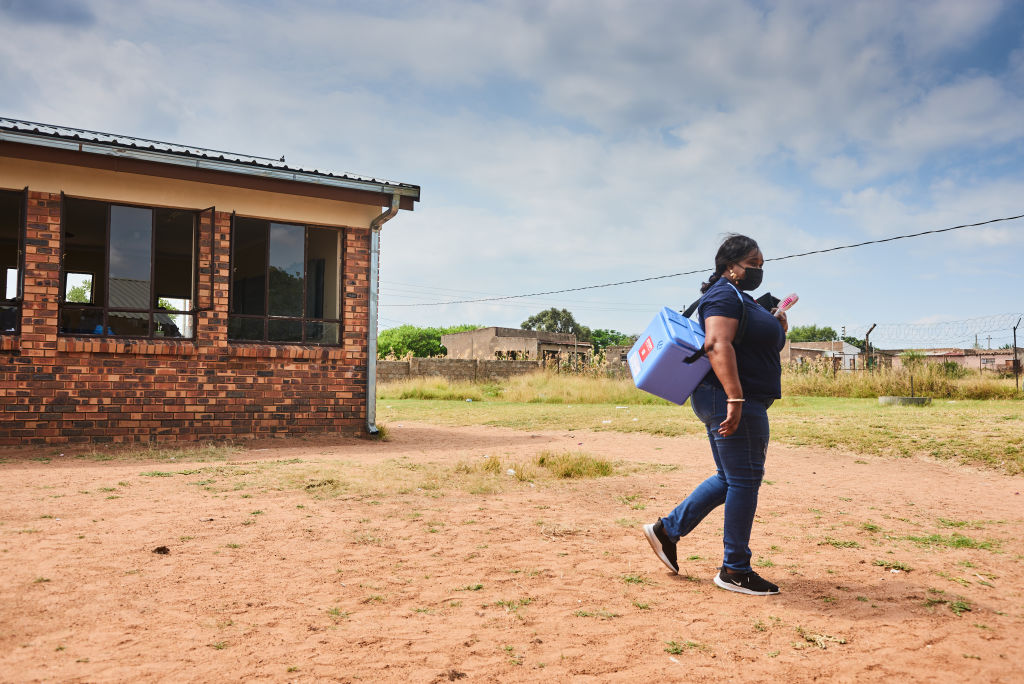A striking divide exists between urban and rural populations when it comes to healthcare access in Africa. While urban areas in countries like South Africa and Kenya have relatively well-developed healthcare systems, many rural areas across the continent are still underserved. Experts weigh in.
Access to healthcare in Africa with a population of 1.2 billion faces significant obstacles, with the World Health Organization (WHO) estimating that half the African population lack access to essential medicines, particularly in sub-Saharan Africa. The problem is compounded by geographic disparities, where rural areas often lack even basic healthcare infrastructure. Distribution inefficiencies exacerbate these gaps, as many rural regions are not sufficiently served by supply chains, leading to shortages of essential medicines and equipment. In Nigeria and Kenya, for example, supply chains remain strained due to poor infrastructure and limited access to reliable distribution networks.
Affordability also remains a core issue, particularly for low-income populations. While healthcare products may be available in urban centers, the cost often places them out of reach for many. A lack of affordable health insurance compounds this problem, meaning that individuals must often pay out-of-pocket for treatments and medications, further deepening healthcare inequalities.
Samuel Okwuada, CEO of Remedial Health, a Nigerian healthtech startup, notes, “The landscape is shaped by investor interests in scalable solutions, and given the current healthcare infrastructure, I would say there are a lot of opportunities.” Yet, Okwuada highlights the critical role technology must play in bridging access gaps, stating that tech-enabled solutions like inventory management can help streamline distribution and ensure medicines are available where they are needed most.
The African Development Bank points out that health facilities in rural areas are often limited to basic services, with a shortage of trained healthcare professionals and essential medicines.
Loading...
Beyond geography, demographic factors such as age, gender, and socioeconomic status heavily influence access to health products. Women, particularly in rural areas, face added challenges due to limited access to maternal health services.
According to the United Nations Children’s Fund (UNICEF), many women in sub-Saharan Africa still lack access to safe childbirth options, with maternal mortality rates remaining alarmingly high. Youth, representing a significant portion of Africa’s population, also face barriers in accessing sexual and reproductive health products, which are often stigmatized or restricted by policy in various regions.
For older populations, the rising prevalence of non-communicable diseases (NCDs) presents an emerging crisis. NCDs, such as hypertension and diabetes, require long-term management and regular access to medications, something that is often lacking in many African countries.
As Biju Mohandas, Partner at LeapFrog Investments, a South African-Australian private equity firm, explains: “Non-Communicable Disease (NCD) prevalence as a proportion of global disease burden is rising dramatically, today, NCDs account for nearly 70% of disease mortality globally.”
Despite these challenges, innovative solutions are emerging across the continent. Healthtech startups, particularly in Nigeria, Kenya, and Egypt, are leading the charge in addressing access issues. According to Salient Advisory, Nigeria now accounts for 29% of leading healthtech innovations in Africa, with tech-enabled solutions such as online pharmacies and inventory management systems reshaping healthcare
delivery. Field Intelligence, Remedial Health, and Maisha Meds are among the key players utilizing digital platforms to improve access to medicines.
Okwuada points to technology’s transformative role in optimizing supply chains and improving healthcare access. “At Remedial Health, we leverage our technological innovations to streamline logistics, optimize routes for deliveries, and provide real-time business intelligence to help local pharmacies and proprietary patent medicine vendors enhance business growth and improve efficiency.”
Beyond tech-enabled solutions, mobile health and e-pharmacies are addressing critical access gaps. These innovations allow healthcare providers to reach patients in remote locations without the need for physical infrastructure. Platforms like Zipline, which uses drones to deliver medical supplies to hard-to-reach areas, have demonstrated the potential of technology to overcome geographic barriers. Similarly, telemedicine services are expanding, enabling patients to consult with healthcare professionals remotely, which is particularly important in rural areas with limited access to hospitals or clinics.
International organizations, such as the Global Fund and the WHO, play a crucial role in improving access to health products in Africa. These organizations often provide the funding and resources needed to bolster healthcare systems, especially in countries hardest hit by diseases like malaria, HIV/AIDS, and tuberculosis. According to UNICEF, Africa accounts for approximately 95% of global malaria cases.
National governments, in collaboration with private sector partners, are also critical to closing the healthcare gap. In countries like Nigeria, where the government is working with healthtech companies to optimize supply chains, there is a growing emphasis on public-private partnerships to enhance access to essential medicines. However, as Mohandas points out, “There is simply not enough funding across all healthcare sub-sectors to satisfy the demands of the continent.”
While Africa’s healthcare landscape is riddled with challenges, it is also ripe with opportunity. The African pharmaceutical market is projected to reach $56 billion by 2030.
However, achieving equitable access will require a multi-faceted approach that addresses not only the supply chain but also affordability, education, and the promotion of preventative care. As Mohandas puts it, “If we don’t change course soon, within a decade we will be staring down a world with enormous financial burden of health for families and states.”
Loading...
